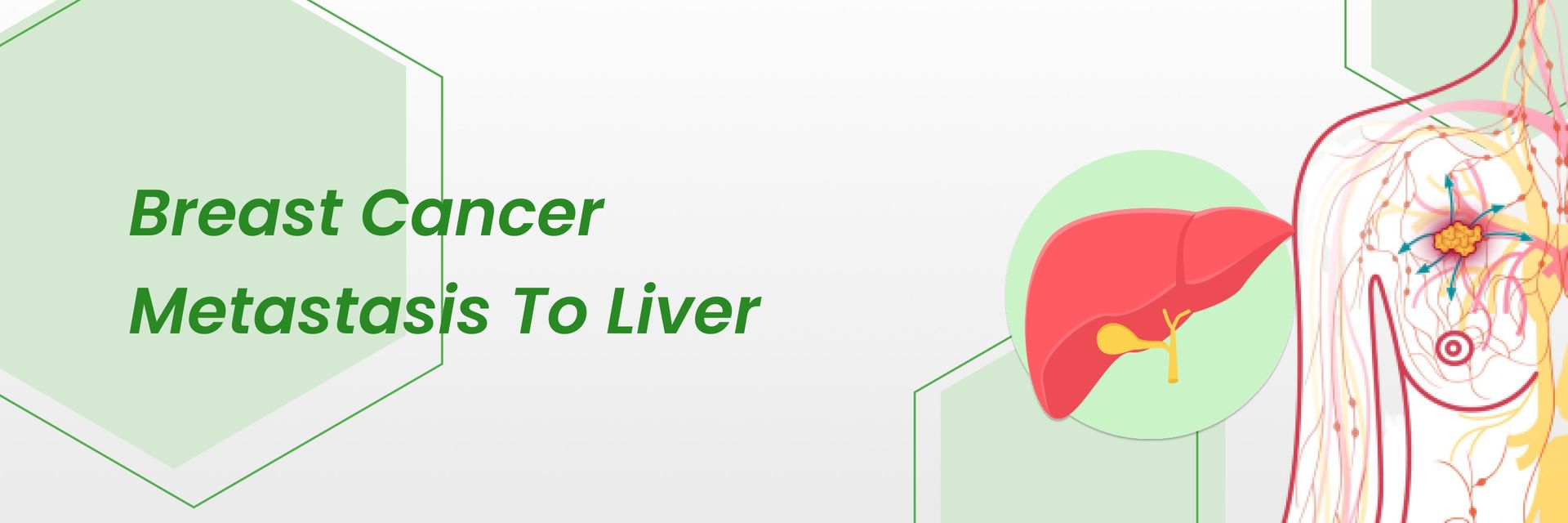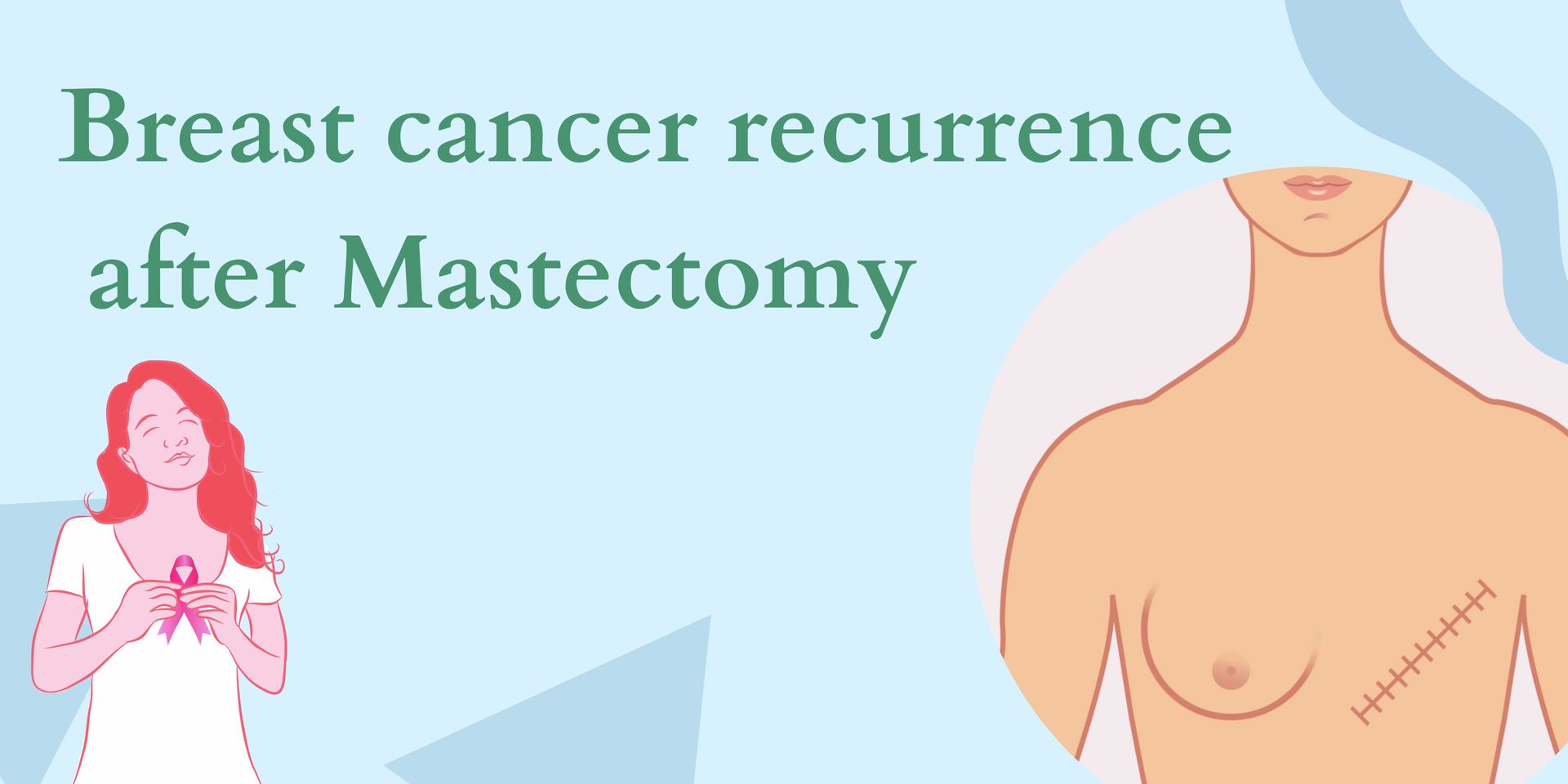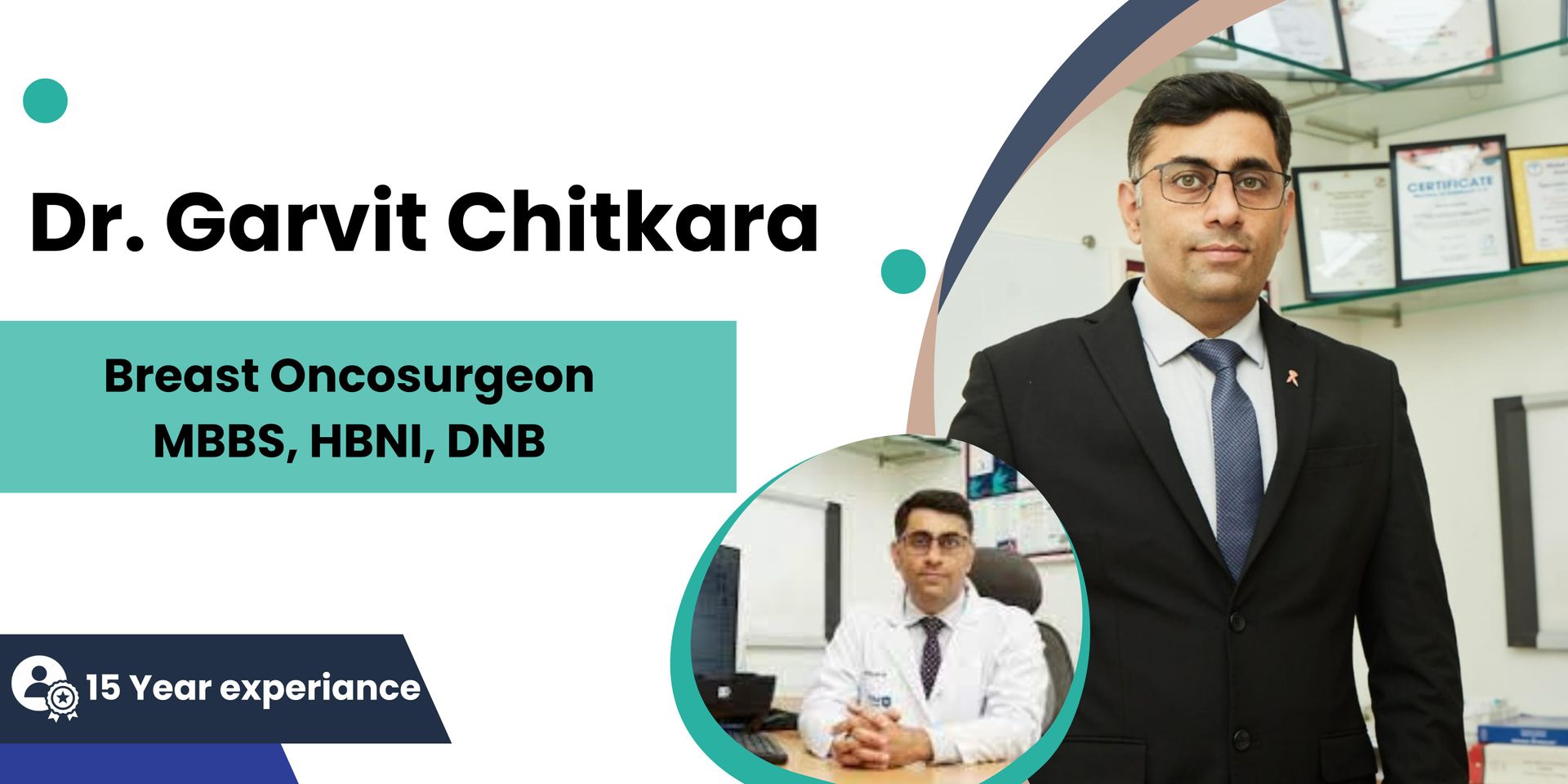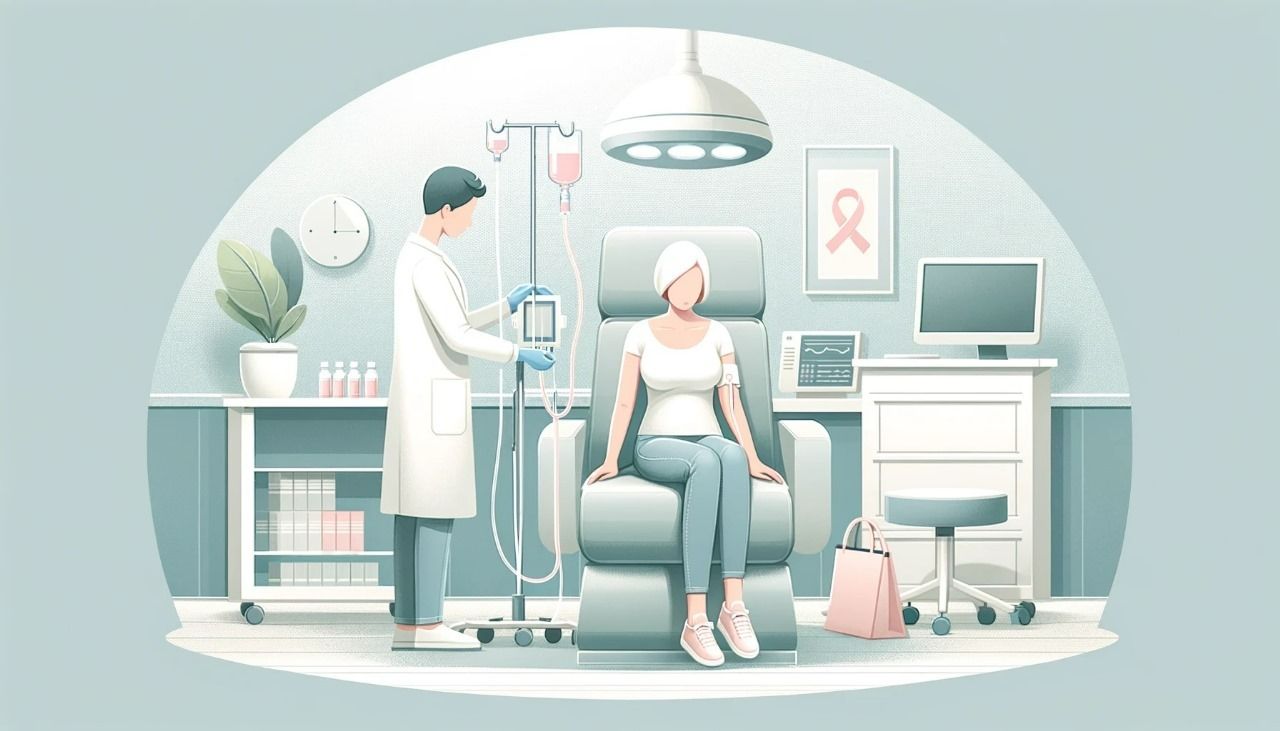Overview- Breast Cancer
Breast cancer is one of the most prevalent cancers among women worldwide, including in India. Despite advances in traditional treatments such as surgery, radiation, and chemotherapy, breast cancer remains a leading cause of cancer-related deaths. According to the National Cancer Registry Programme (NCRP), breast cancer is the most common cancer among Indian women, with an estimated 1 in 28 women likely to develop the disease during their lifetime. The Indian Council of Medical Research (ICMR) reported that in 2020, there were approximately 178,361 new breast cancer cases and 90,408 breast cancer-related deaths in India. In recent years, stem cell therapy for breast cancer has emerged as a promising avenue, offering hope for more effective and less invasive options.
Prioritize your well-being – don't delay and do regular screening. Schedule your appointment with an oncologist today. Your health is invaluable, take the first step today.
So, what exactly are stem cells?
Stem cells are immature cells found in our bodies that can differentiate into any tissue. They are also available in various parts of our bodies.
How do stem cells come into the picture?
In the context of breast cancer, stem cell therapy aims to harness the regenerative properties of stem cells to target and eliminate cancer cells, repair damaged tissues, and enhance the effectiveness of conventional treatments.
FDA Approval and Regulatory Status
As of now, the FDA has approved limited stem cell therapies for specific conditions, such as hematopoietic stem cell transplantation for blood cancers. However, the use of stem cell therapy for breast cancer is still largely experimental and is not yet widely approved by the FDA.
Key Considerations for FDA Approval
- Safety and Efficacy: Clinical trials must demonstrate that the therapy is safe and effective for its intended use.
- Manufacturing Standards: Production of stem cells must adhere to stringent quality control measures to ensure consistency and safety.
- Ethical Considerations: Use of embryonic stem cells involves ethical debates, and their use is regulated to prevent misuse.
Despite these challenges, ongoing research and clinical trials are paving the way for future approvals and advancements in stem cell therapy for breast cancer.
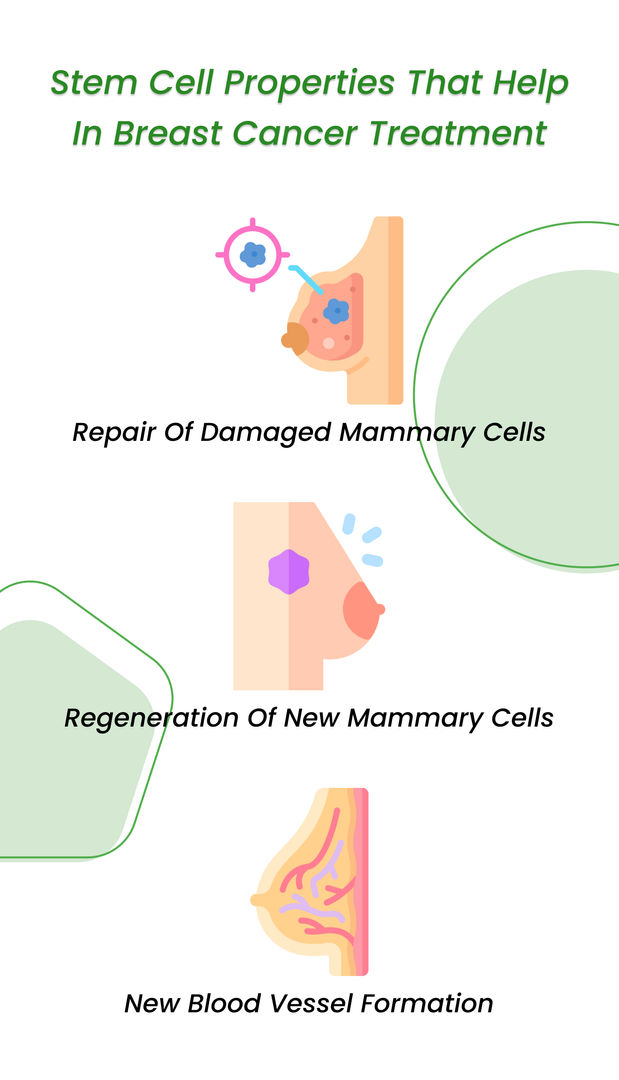
Explore the potential of Stem Cell Therapy for Breast Cancer. Take charge – contact us today to discuss your options and reclaim control over your health.
Types of Stem Cells Used to Treat Breast Cancer
Did you know we already have numerous stem cells available in our bodies?
Stem Cell Therapy in Breast Cancer Treatment
Stem cell therapy for breast cancer includes several innovative approaches:
1. Hematopoietic Stem Cell Transplantation (HSCT)
HSCT involves transplanting blood-forming stem cells from sources such as bone marrow, peripheral blood, or umbilical cord blood. This method is often paired with high-dose chemotherapy to restore the ability of bone marrow to produce healthy blood cells.
Advantages:
- Effective in treating certain aggressive breast cancers.
- Can enhance the efficacy of chemotherapy.
Challenges:
- Risk of complications like graft-versus-host disease (GVHD).
- Requires a compatible donor.
2. Mesenchymal Stem Cells (MSCs)
MSCs are multipotent stromal cells capable of differentiating into various cell types, including bone, cartilage, and fat cells. In breast cancer treatment, MSCs can be engineered to deliver anti-cancer agents directly to the tumor site, reducing damage to healthy tissues.
Advantages:
- Targeted delivery of therapeutic agents.
- Fewer side effects compared to conventional treatments.
Challenges:
- Potential for tumorigenicity if not properly controlled.
- Ethical and regulatory considerations.
3. Induced Pluripotent Stem Cells (iPSCs)
iPSCs are created by reprogramming adult cells to a pluripotent state, enabling them to differentiate into any cell type. This offers a personalized approach to breast cancer treatment, as iPSCs can be derived from the patient’s own cells.
Advantages:
- Personalized treatment with a reduced risk of immune rejection.
- Potential for developing patient-specific cancer models for drug testing.
Challenges:
- Complex and costly production process.
- Risk of genetic instability.
Eligibility
So, who exactly is eligible for stem cell breast cancer?
Well, each clinical trial has its own strict set of requirements.
Some general criteria are:
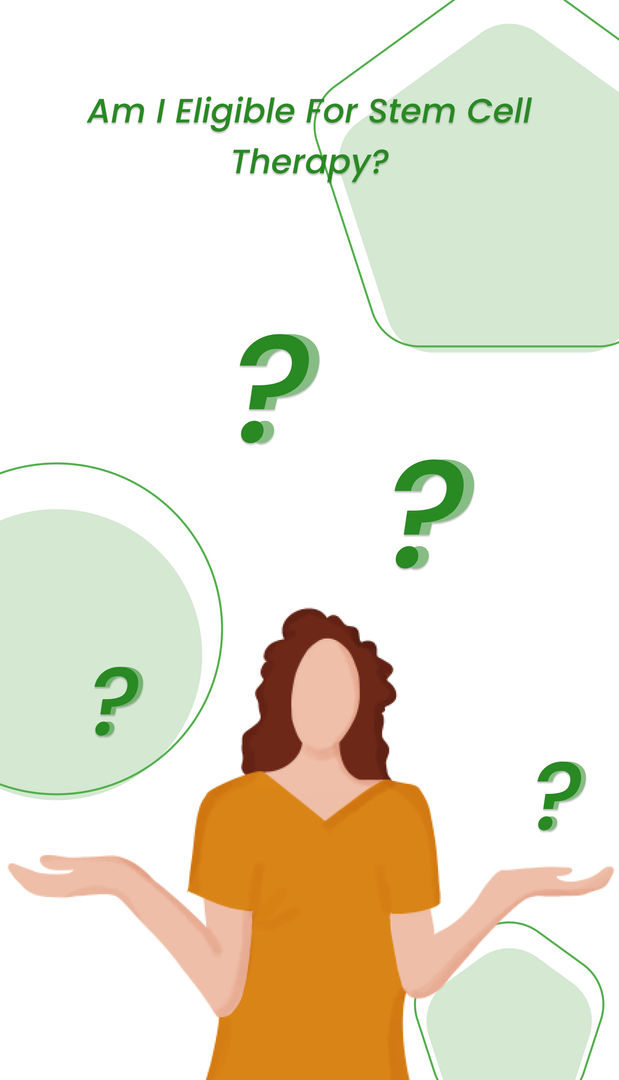
- Breast cancer diagnosis should be confirmed with a biopsy
- You should have stage 3 or 4 cancer
- No extensive medical history
- No history of organ replacement
- No history of autoimmune diseases
Potential Benefits and Risks of Stem Cell Therapy for Breast Cancer
Like every medical procedure, even stem cell therapy for breast cancer has its own set of benefits and risks.
| Benefits | Risks |
|
|
|
|
|
|
|
|
|
|
|
|
|
|
|
How Much is Stem Cell Treatment for Breast Cancer?
How is stem cell treatment for breast cancer going to affect your bank balance?
The answer to this question depends on a variety of factors such as:
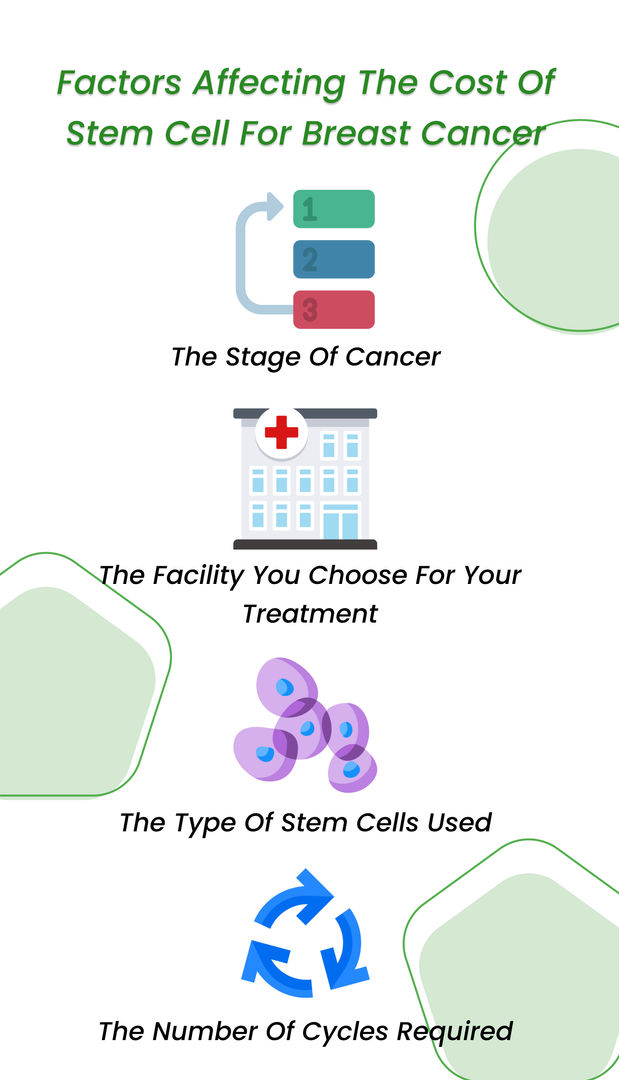
- The stage of cancer
- The facility you choose for your treatment
- The type of stem cells used
- The number of cycles required
In India, stem cell treatment for breast cancer costs 8000 to 13,000 USD. The same treatment costs upward of 25,000 USD in the US!
You should note that since breast cancer stem cell treatment is still undergoing clinical trials, it is not covered by any medical insurance.
Curious about the cost of Stem Cell Treatment for Breast Cancer? Take the first step to recovery – contact us now for personalized information and support.
Stem Cell Therapy for Different Stages of Breast Cancer

Breast cancer is divided into stages from 0 to 4. Currently, stem cell therapy is only used for the treatment of stages 3 and 4.
Here is the revised table with the information organized into two columns, covering Stages 2, 3, and 4 of breast cancer:
| Stage of Cancer | Details |
|---|---|
| Stage 3 | Stage 3: Divided into 3A, 3B, 3C. Anti-inflammatory properties of stem cells are useful. Direct delivery to the breast. Additional Info: Stage 2: Stem cells strengthen immune response. Stage 3: Reduces tumor size, and prevents recurrence. |
| Stage 4 | Cancer metastasized and spread to other organs. IV infusion of stem cells is preferred. Self-homing property locates, and repairs organs. Additional Info: Used with chemotherapy. Manages symptoms, and improves quality of life in advanced stages. |
Procedure
Are you worried that this procedure will be long and painful?
You can relax because it can be done in three simple steps.
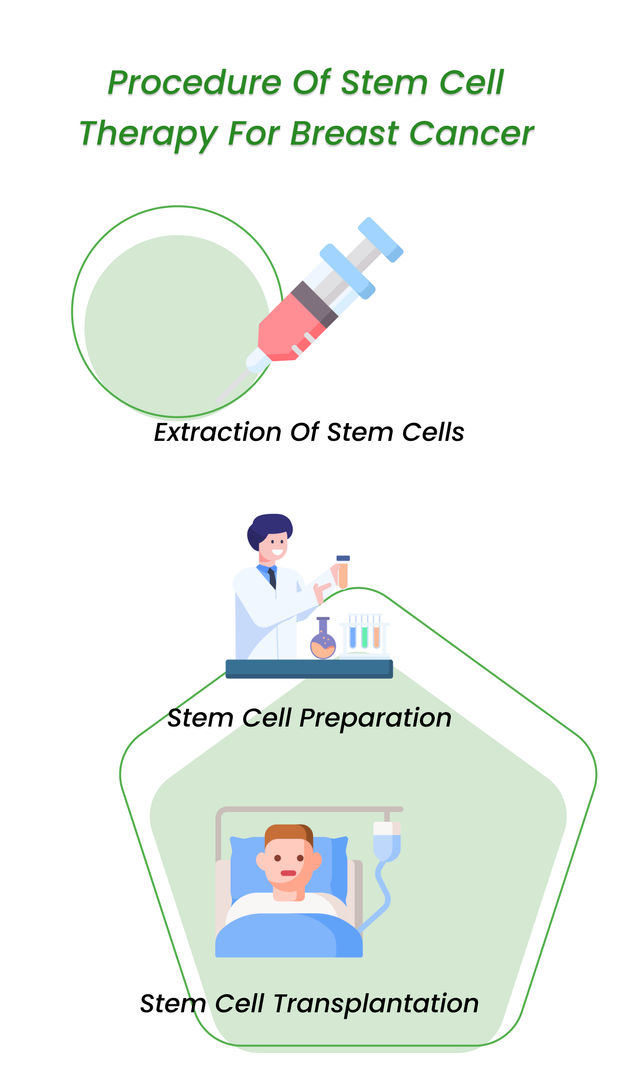
| Step one: Extraction of stem cells |
|
| Step 2: Stem cell preparation |
|
| Step 3: Stem cell transplantation |
|
What to Expect After Stem Cell Therapy for Breast Cancer?
Did you know that stem cell therapy has a very short recovery time?
It's true, you will be discharged from the hospital two or three days after the procedure. You can resume your daily activities one week after the procedure.
Right after the procedure, you might feel some nausea or have a headache. This only lasts for a few hours and resolves itself.
You will also be very glad to hear, that no long-term side effects have been reported by any clinical trial. This procedure is completely safe.
Results
About three weeks after the procedure, one can start seeing visible results. The stem cells continue to repair and form new cells for up to a year after the procedure.
You can expect to see:
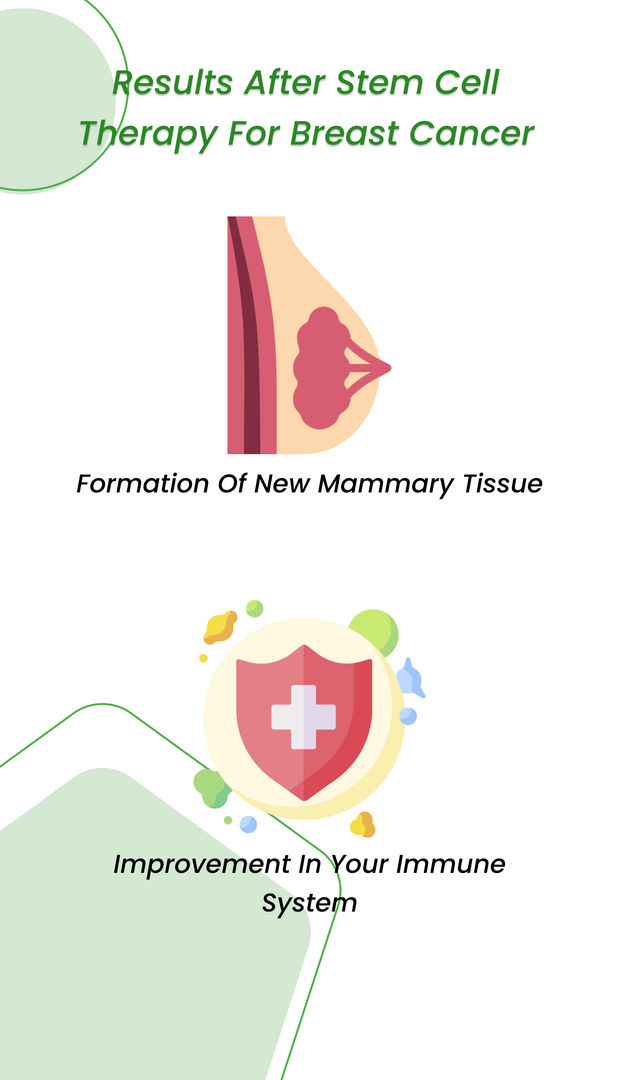
- Formation of new mammary tissue
- Improvement in your immune system
But are they permanent?
Unfortunately, not enough data is available to answer this question directly.
However, many clinical trials have shown an increased life expectancy of up to five years.
Sometimes, another stem cell cycle might be required after two or three years.
How Successful is Stem Cell Treatment for Breast Cancer?
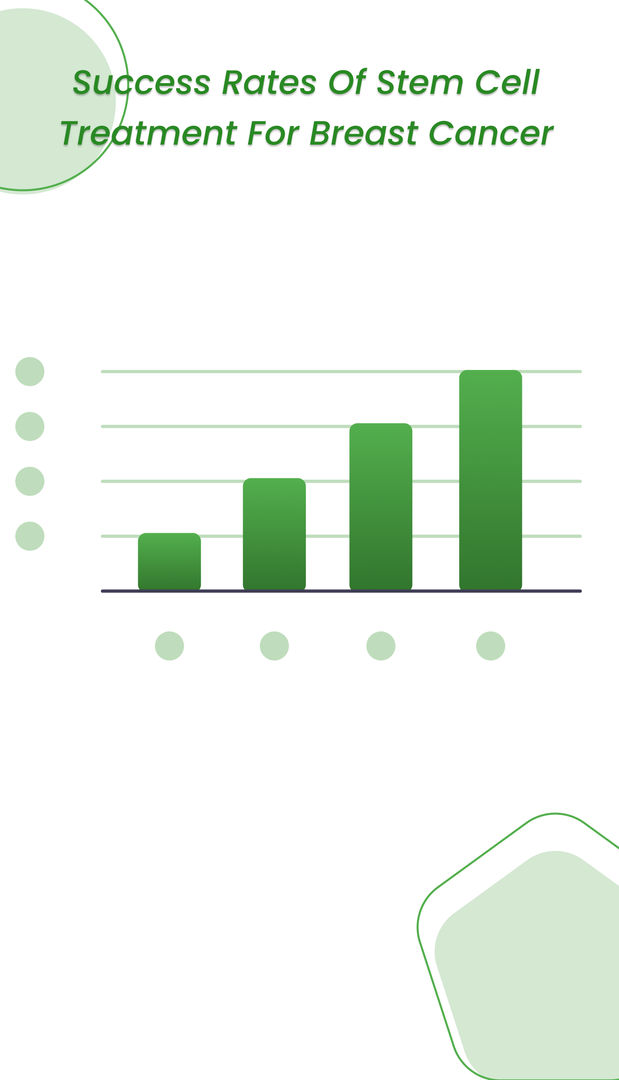
At this point, there is no cure for breast cancer. Stem cell treatment aims to increase the period of remission.
The survival of breast cancer patients is measured with a life expectancy of two to five years after diagnosis.
In clinical trials, 30% of patients have shown a remission period longer than five years.
Other Treatments Used Along Stem Cell Treatment for Breast Cancer
Ever since researchers discovered the many useful properties of stem cells, they have been trying various ways to use them to treat breast cancer.
Stem cells are used in conjunction with immunotherapy drugs to improve their effectiveness. In this treatment, stem cells also form new mammary cells, leading to a quicker recovery.
Research is also on to use of stem cells for targeted delivery of chemotherapy drugs, which will one day help preserve healthy cells and only kill the cancer cells.
A Research Study Explaining Current and Future Scope and Challenges for Stem Cell Therapy for Breast Cancer
Currently, stem cell therapy has shown a lot of promise in treating breast cancer. However, a few challenges still exist that need to be ironed out.
According to a review paper by Brian J Morrison, a lot more data is still required to start getting predictable results. There is a need to improve the survival rate as well.
At present, there is no consistency in the method of delivery of stem cells. This also needs to be addressed.
Despite these challenges, stem cell therapy has a lot of potential in both, treating breast cancer and helping cancer patients recover more quickly.
Reference:
